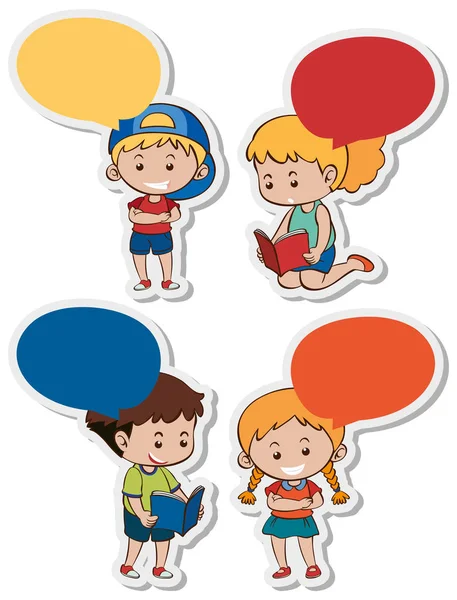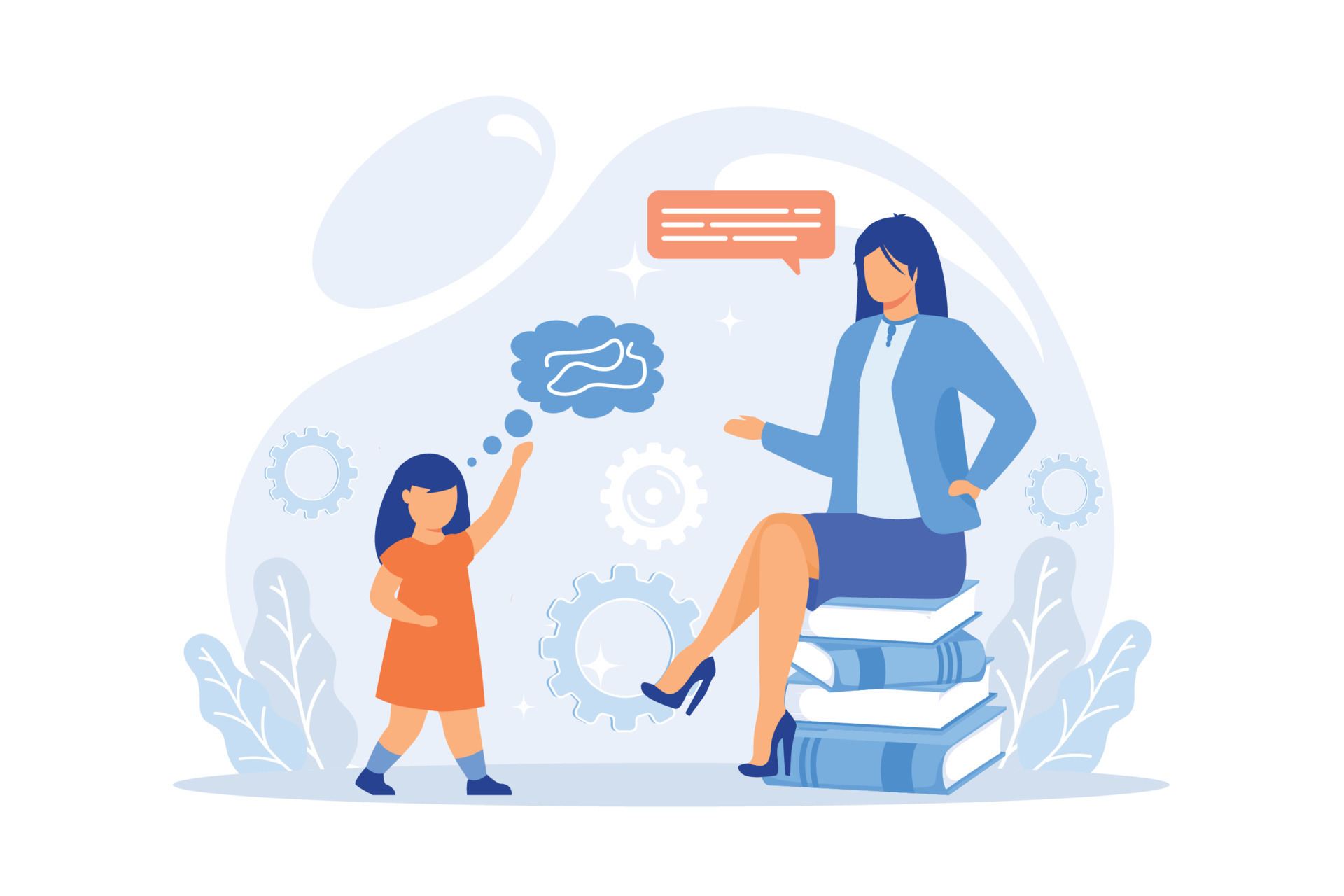Every child deserves to have a voice—a voice that can express their thoughts, needs, and dreams. However, for some children, the path to effective communication is hindered by speech and language difficulties. In these moments, the role of pediatric speech therapy becomes paramount. It becomes a light that shines on the potential hidden within every child.
With a nurturing touch and rocksteady dedication, speech-language pathologists (SLPs) embark on a journey to unlock the door to communication. In this article, we delve into the transformative world of speech therapy for children, exploring the profound impact it can have on their lives.
Contents:
- What is psychotherapy for kids?
- Psychotherapy for kids: Who will benefit?
- Benefits of psychotherapy for kids
- Different types of psychotherapy for kids
- Conclusion
How does Speech Therapy Work?
Speech therapy is a specialized form of language intervention that aims to help individuals improve their communication skills. It is typically conducted by trained professionals known as speech-language pathologists or speech therapists. Speech therapy can benefit people of all ages, from young children to adults.
The first step in speech therapy is the evaluation process. A speech-language pathologist assesses the individual’s speech and language abilities to identify any areas of difficulty. This evaluation may involve standardized tests, informal assessments, and observations of the individual’s communication skills in various settings.
Once the evaluation is complete, the speech-language pathologist develops a personalized treatment plan tailored to the individual’s specific needs. This plan may target various aspects of communication, such as articulation, language comprehension, expression, social communication, fluency disorders, or cognitive-communication disorders.

What kinds of activities are often used in speech language therapy?
Speech therapy sessions typically involve a combination of exercises, activities, and techniques designed to stimulate language development and improve communication skills.
These activities may include:
Articulation exercises
These activities focus on improving the clarity of speech sounds. The individual may practice pronouncing specific sounds or engage in exercises that target the coordination of the speech muscles.
Language enrichment activities
These activities aim to enhance language comprehension and expression. They may involve vocabulary-building exercises, sentence formulation tasks, storytelling, or engaging in conversations to develop practical communication skills.
Social communication skills training
This aspect of speech therapy focuses on improving an individual’s ability to engage in social interactions. The therapist may use role-playing exercises, social stories, or group activities to help individuals navigate social situations and develop appropriate communication skills.
Fluency-enhancing techniques
For individuals with fluency disorders, such as stuttering, speech therapists can teach strategies to improve fluency. Techniques like controlled breathing, slowing down speech rate, or using specific speech patterns can help individuals gain control over their speech.
Alternative communication methods
Sometimes, speech-language pathologists may introduce alternative communication methods for individuals with severe speech impairments. These methods can include sign language, augmentative and alternative communication (AAC) devices, or other assistive technologies.
Does Speech Therapy Make a Difference?

Speech therapy has been proven to make a significant difference in individuals with speech and language disorders. Research and clinical experience consistently show that early intervention is crucial for the most effective outcomes. Pediatric speech therapy, in particular, plays a vital role in supporting children’s communication development and reducing the impact of language disorders on their overall well-being.
Speech therapy can have numerous benefits, including:
Improving communication skills
Speech therapy helps individuals develop clearer speech, better language comprehension, and more effective expression. This enables them to communicate more confidently and effectively with others.
Enhancing academic performance
Language skills are closely linked to academic success. By addressing language difficulties, speech therapy can help children perform better in school, acquire reading and writing skills, and succeed in various academic tasks.
Increasing social interaction
Communication disorders can often hinder social interactions. Speech therapy interventions target social communication skills, allowing individuals to engage more effectively in social interactions, make friends, and build relationships.
Boosting self-esteem
Improved communication abilities can significantly boost self-confidence and self-esteem. As individuals become more competent in expressing themselves, they gain a greater sense of independence and empowerment.
Improving the quality of life
Effective communication is essential for daily activities, personal relationships, and overall quality of life. By addressing speech and language difficulties, speech therapy enhances an individual’s ability to participate fully in various aspects of life.
Different types of psychotherapy for kids
There are several different types of psychotherapy that may be used to treat children and adolescents. Some of the most common types of therapy include:
Cognitive-Behavioral Therapy (CBT)
CBT is a type of therapy that focuses on changing negative thought patterns and behaviors. It can be helpful for children and adolescents who are struggling with anxiety, depression, or other mental health issues. The therapist will work with the child to identify negative thoughts and beliefs, and then teach them how to challenge and replace those thoughts with more positive ones.
Play Therapy
Play therapy is a type of therapy that uses play to help children express themselves and learn new coping skills. This can be helpful for children who are struggling with trauma or other emotional issues. The therapist will provide toys and games for the child to play with, and use the play as a way to engage the child in therapy and help them process their emotions.
Family Therapy
Family therapy involves the entire family in the therapy process. It can be helpful for children who are experiencing family conflict or who have been affected by a major life event, such as divorce or the death of a loved one. The therapist will work with the family to improve communication and strengthen relationships.
Group Therapy
Group therapy involves a small group of children working together with a therapist. This can be helpful for children who are struggling with social skills or who have difficulty making friends. The therapist will guide the group through various activities and discussions to help the children learn new skills and build relationships.
Art Therapy
Art therapy is a type of therapy that uses art to help children express themselves and explore their emotions. This can be helpful for children who have difficulty talking about their feelings. The therapist will provide art supplies and encourage the child to create art, which can then be used as a way to start conversations about their emotions.
Parent-Child Interaction Therapy (PCIT)
PCIT is a type of therapy that involves both the child and the parent. It can be helpful for children who are struggling with behavioral issues. The therapist will coach the parent on how to interact with the child in a positive way, and teach them how to reinforce good behavior.
Eye Movement Desensitization and Reprocessing (EMDR)
EMDR is a type of therapy that is used to treat trauma. It involves the child recalling a traumatic event while also focusing on a specific movement or sound. This can help the child process their emotions and reduce the impact of the trauma.
Dialectical Behavior Therapy (DBT)
DBT is a type of therapy that is often used to treat children and adolescents who are struggling with borderline personality disorder or self-harm behaviors. It focuses on teaching skills to manage emotions, improve relationships, and reduce impulsive behaviors.
What Age is Best for Speech Therapy?
The best age to start speech therapy depends on the individual’s specific needs. Early intervention is generally recommended for children with speech or language disorders, as research suggests that the earlier the intervention, the better the outcomes.
In infants and toddlers, speech therapy services may focus on stimulating language development through play-based activities. Early intervention programs often involve parents or caregivers, who are taught strategies to support their child’s communication skills at home.
Speech therapy can be provided in schools or private clinics for school-aged children. Language disorders, articulation disorders, and other speech-related difficulties can be effectively addressed through individual therapy, group sessions, and collaboration with teachers and parents.
Adults can also benefit from speech therapy, especially if they experience speech or language difficulties due to neurological conditions like stroke, traumatic brain injury, or degenerative diseases. Speech therapy can help them regain communication skills, adapt to any changes in speech or language, and improve their overall quality of life.
How Do I Know if My Child Needs Speech Therapy?
It is important to remember that speech and language development varies among children. However, certain signs may indicate the need for speech therapy:

- Limited vocabulary or difficulty finding the right words for their age group.
- Difficulty understanding or following directions.
- Unclear speech that is difficult to understand.
- Persistent stuttering or other fluency disorders.
- Trouble engaging in age-appropriate conversations.
- Difficulty with reading and writing skills.
- Problems with social communication, such as making eye contact, taking turns, or understanding social cues.
- Persistent hoarseness or other voice-related issues.
If you notice any of these signs or have concerns about your child’s speech and language development, contact us to make an appointment for a comprehensive evaluation.
How Do I Start Speech Therapy?
Speech therapy is a valuable intervention for individuals with speech and language disorders. Speech-language pathologists utilize various techniques and activities to improve communication skills, address articulation and language disorders, and support social communication.
Whether it is pediatric speech therapy or therapy for adults, early intervention and personalized treatment plans can significantly affect an individual’s communication abilities and overall quality of life.
If you suspect that you or your child may benefit from speech therapy, consult with a speech-language pathologist to initiate the evaluation and treatment process.
Obtain a referral:
Depending on your location and insurance requirements, you may need a referral from a primary care physician or pediatrician to initiate speech therapy services. Check with your healthcare provider to ensure the necessary steps are taken.
Consult with a speech-language pathologist:
Seek a consultation with a qualified speech-language pathologist in your area. They will evaluate your or your child’s communication skills, determine the need for speech therapy, and develop an appropriate treatment plan.
Super Psyched Support offers various therapy services for children , including speech therapy, school psychology, physical therapy, family therapy, occupational therapy, and other mental health-related services. Contact us today to schedule an evaluation, share your concerns, or obtain more information.




